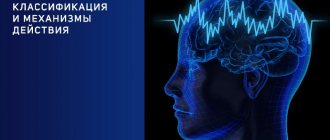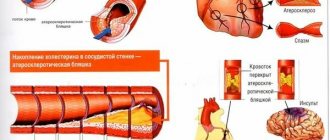Pregabalin is an effective drug in demand in psychiatry, neurology, and rheumatology, which is available only by prescription. The drug and its over-the-counter analogues quickly cope with epileptic seizures, anxiety, and musculoskeletal pain.
Characteristics of the drug
Pregabalin is a pharmacological drug that was previously freely sold in pharmacies. It was in demand among patients with epilepsy, acute pain in muscles and joints, and increased causeless anxiety. About 5 years ago, Pregabalin was sold upon presentation of a prescription from a doctor. And all because of the pronounced side effects - euphoria, lethargy, confusion. When combined with alcohol, auditory and visual hallucinations are common.
Instructions
The instructions for use of Lyrica indicate the following indications for use:
- Generalized anxiety disorder;
- Epilepsy;
- Neuropathic pain;
- Fibromyalgia.
In addition, Lyrica is used as a strong pain reliever for diagnoses not specified in the instructions. In particular, Lyrica is used to reduce pain during withdrawal symptoms in the treatment of drug addiction.
Lyrica tablets are taken in 2 to 3 doses at a dosage of 150 to 600 mg per day. Treatment begins with small dosages and increases if necessary. It is also necessary to complete the course of treatment by gradually reducing the dosage to avoid withdrawal syndrome. The maximum concentration of pregabalin in the blood is achieved 1 hour after taking the medicine.
The list of side effects of Lyrica is quite impressive. The most dangerous is the risk of becoming dependent on the drug, like a drug. When taking Lyrica, your mood improves, a feeling of lightness and euphoria appears. The drug is popular among drug addicts. When consumed with alcohol, it has a detrimental effect on the health of the body and psyche.
Common negative consequences of treatment with Lyrica:
- Mental and neurological disorders;
- Changes in vision, vestibular apparatus, digestive and reproductive systems;
- Changes in metabolism;
- In addition, there are also less common consequences.
Release from pharmacies
Just a few years ago, dispensing structural analogues of Pregabalin was a headache for pharmacy employees. Pharmacists and pharmacists have encountered inappropriate behavior from clients with persistent drug addiction. Despite the fact that they were buying an expensive (about 1,000 rubles) drug on an industrial scale, sales were falling. It’s just that respectable citizens preferred not to visit pharmacies where drug addicts constantly shopped.
Statins are a group of drugs that are widely used to combat atherosclerosis and lower cholesterol levels. Their effectiveness and the number of side effects depend on whether a particular medicine belongs to a particular generation. Read more in the article: “the safest statin for lowering cholesterol.”
Not surprisingly, structural substitutes soon disappeared from the shelves. At first, pharmacies themselves stopped purchasing it in order to preserve their reputation. And then the Ministry of Health banned its sale without a prescription.
The reason is the sale of the drug to minors at parties and even in schools.
Now Pregabalin is a drug prohibited from free sale. But many pharmacies are still subject to huge fines for violating this law.
Lyrica®
Patients with diabetes mellitus
In some patients with diabetes mellitus, in case of weight gain during treatment with pregabalin, dose adjustment of hypoglycemic agents may be required.
Hypersensitivity reactions
Pregabalin should be discontinued if symptoms of angioedema (such as facial swelling, perioral edema or upper respiratory tract swelling) develop.
Suicidal thoughts and behavior
Antiepileptic drugs, including pregabalin, may increase the risk of suicidal thoughts or behavior. Therefore, patients receiving these drugs should be closely monitored for new or worsening depression or suicidal thoughts or behavior.
Decreased gastrointestinal function
When pregabalin and opioids are used concomitantly, the need for prophylactic measures to prevent the development of constipation (especially in elderly patients and women) should be considered.
Dizziness, drowsiness, loss of consciousness, confusion and cognitive impairment
Pregabalin treatment has been associated with dizziness and drowsiness, which increase the risk of accidental injury (falls) in older adults. During post-registration use of the drug, cases of loss of consciousness, confusion and cognitive impairment were also observed. Therefore, until patients evaluate the possible effects of the drug, they should exercise caution.
Cancellation of concomitant therapy with anticonvulsants There is insufficient information on the possibility of discontinuing other anticonvulsants when seizures are suppressed with pregabalin and the advisability of monotherapy with this drug. There are reports of the development of seizures, including status epilepticus and petit mal seizures, during the use of pregabalin or immediately after the end of therapy.
Effect of pregabalin on vision
In clinical trials, patients receiving chronic pregabalin experienced more frequent side effects such as blurred vision than patients receiving placebo. However, this side effect ceased as treatment continued. In clinical studies in which patients were examined ophthalmologically, decreased visual acuity and visual field changes were observed more frequently in patients receiving pregabalin than in patients receiving placebo. The incidence of fundus changes was higher in patients receiving placebo.
Although the clinical significance of these changes has not been established, patients should report changes in vision during pregabalin therapy to their physician. If symptoms of visual impairment persist, monitoring should be continued. More frequent vision screenings should be performed in patients who are already seen regularly by an ophthalmologist. If adverse reactions such as loss of vision, blurred vision or other visual disturbances occur in response to the use of pregabalin, discontinuation of the drug may lead to the disappearance of these symptoms.
Kidney failure
There have also been cases of renal failure; in some cases, renal function was restored after discontinuation of pregabalin.
Pregabalin withdrawal symptoms
The following adverse events have been observed following discontinuation of pregabalin after long-term or short-term therapy: insomnia, headache, nausea, diarrhea, flu-like syndrome, depression, sweating, dizziness, convulsions and anxiety. Available evidence suggests that the incidence and severity of withdrawal symptoms may depend on the dose of pregabalin.
Pregabalin abuse
There is no evidence that pregabalin is active at the receptors responsible for the development of drug abuse in patients. During post-registration studies, cases of violation of the recommended dosage regimen or abuse of pregabalin were observed. As with any drug that affects the central nervous system, the patient's medical history should be carefully assessed for any history of drug abuse, and the patient should be monitored for potential violations of the recommended dosage regimen or abuse of pregabalin (eg, development of resistance to pregabalin therapy, unjustified increasing the dose of the drug, addictive behavior of the patient).
Congestive heart failure
Although there was no apparent relationship with pregabalin plasma concentrations and the development of heart failure, the development of chronic heart failure during pregabalin therapy was reported in some patients during post-marketing use of the drug. In patients without clinically significant signs of heart or vascular disease, there was no association between peripheral edema and cardiovascular complications, such as increased blood pressure or chronic heart failure. These reactions were predominantly observed in elderly patients who suffered from impaired cardiac function and were receiving the drug for neuropathy. Therefore, pregabalin should be used with caution in this category of patients. After discontinuation of pregabalin, the manifestations of such reactions may disappear.
Treatment of central neuropathic pain associated with spinal cord injury The incidence of CNS adverse events, especially somnolence, increases with the treatment of central neuropathic pain associated with spinal cord injury, which, however, may be due to the additive effects of pregabalin and other concomitant medications ( for example, antispastic). This circumstance should be taken into account when prescribing pregabalin for this indication.
Encephalopathy
Cases of encephalopathy have been reported, especially in patients with concomitant diseases that may lead to the development of this condition.
What are over-the-counter analogs intended for?
The main indication for the use of Pregabalin analogs is the relief of acute pain in the musculoskeletal system. They are used both as monotherapy and as part of complex treatment with narcotic and non-narcotic analgesics, non-steroidal anti-inflammatory drugs. The drugs help patients with the following pathological conditions:
Advertising:
- neuropathic pain, which is not a response to physical damage, but is associated with disturbances in the functioning of areas of the peripheral and central nervous systems;
- generalized anxiety disorders, which are manifested by increased nervous excitability, sleep disorders, depression;
- Fibromyalgia is a chronic pain syndrome characterized by musculoskeletal pain and the presence of specific points of increased sensitivity.
Substitutes are intended to eliminate partial epileptic seizures. They are most often used in combination with other anticonvulsants. The use of drugs is also recommended for the prevention of another attack of epilepsy.
Xylene is a vasoconstrictor drug that relieves the manifestation of a runny nose. Promotes rapid restoration of nasal passages. Controls the functioning of the circulatory system, eliminates swelling of the nasal mucosa. Read more in the article: “What are xylene nasal drops used for?”
Treatment
The patient's management tactics depend on his age, experience of pregabalin drug addiction, and experience of using other drugs. In addition, indications for the use of anticonvulsants are taken into account. If the patient suffers from epilepsy or neuropathies, the doctor selects the optimal replacement.
The following activities are shown:
- detoxification;
- work with a psychologist individually or in groups.
Treatment is carried out both on an outpatient basis and in a hospital. Then - resocialization of the patient. Drug addiction is not much different from drug or alcohol addiction. It is difficult to get rid of it, since patients begin to take pregabalin according to indications. And when it is canceled, the person is afraid that the symptoms of the underlying disease will return. Physical and psychological dependence arises. The only way to get rid of it is to turn to experienced narcologists .
Structural analogues of Pregabalin
In pharmacies, the free sale of not only Pregabalin, but also all its structural analogues is prohibited. This is the name for pharmacological drugs with identical active ingredients. Exact analogues of the drug:
- Lyrics
. A drug from German with a pronounced antiepileptic effect. It is characterized by accelerated absorption of the active ingredient due to the characteristics of the auxiliary composition; - Algerica
. Produced by the Croatian pharmaceutical factory PLIVA HRVATSKA in the form of capsules of various colors. The cost of Algerica is approximately the same as that of Pregabalin - 1000 rubles.
Relatively recently, the domestic pharmaceutical factory North Star began producing Pregabalin. The capsules contain pregabalin, but the auxiliary composition differs somewhat from the Hungarian drug. But this does not affect the therapeutic effectiveness of the drug. A doctor can prescribe Pregabalin to a patient, both imported and domestically produced.
Current substitutes
Advertising:
For the treatment of fibromyalgia, epilepsy, and anxiety disorders, there are many drugs similar in action to Pregabalin. They differ in active and additional ingredients, release form, and you can buy them without a prescription.
| A drug | Manufacturer | Active substance | Cost, in rubles |
| Diclofenac | OZON LLC, OJSC Tatkhimfarmpreparaty (Russia), Hemofarm (Serbia), Magistra C&C (Romania) | diclofenac | from 40 |
| Ketoprofen | Vertex, OZONE | ketoprofen | from 70 |
| Nimesulide | Atoll (Russia), Berezovsky Pharmaceutical Plant (Russia), Teva Pharmaceutical Industries (Israel), Obolenskoye (Russia) | nimesulide | from 70 |
| Neurodiclovit | GL Pharma (Austria) | pyridoxine hydrochloride, diclofenac sodium, thiamine hydrochloride, cyanocobalamin | from 200 |
| Noopept | Pharmstandard, Russia | N-phenylacetyl-L-propylglycine ethyl ester | from 300 |
All drugs are substitutes for Pregabalin, but rarely become the first choice in the treatment of epilepsy and neuropathic pain. They are safer and less likely to cause adverse reactions. But Pregabalin relieves the symptoms of pathologies better and faster and provides long-term remission.
Over-the-counter analogues with antiepileptic action
Advertising:
Pregabalin analogues with powerful anticonvulsant activity are used in the treatment of epilepsy. But all of them are available only by prescription, as they are addictive. Pharmacies sell medicines that have a mild sedative and calming effect. They do not stop epileptic seizures, but prevent their occurrence. Over-the-counter substitutes for Pregabalin include the following pharmacological drugs:
- Novo-Passit;
- Noopept;
- Tenoten.
The list of natural over-the-counter analogues of Pregabalin includes herbal products with a sedative effect. Motherwort, valerian, and peony are good for calming. They are used as part of complex therapy for partial epilepsy. These drugs are also indicated for the elimination of anxiety disorders, like Pregabalin.
Herbal over-the-counter substitutes for Pregabalin normalize sleep and prevent the development of depressive conditions.
They cope with constant nervousness, trembling, muscle tension, sweating, palpitations, dizziness and discomfort in the solar plexus area.
Analogs
Here is a description of similar drugs, similar in composition or effect on the body, to Lyrica.
Analogs, generics, and substitutes for Lyrica include drugs produced by other manufacturers, under a different trade name, or containing another active ingredient, but having the same or similar therapeutic effects.
There are both cheaper analogues and more expensive ones. In addition, the dosage of Lyrica analogues may differ - from 25 mg to 300 mg per capsule. Some of them can be purchased without prescriptions.
Remember that to change a prescribed medication, you must consult your doctor.
Phenibut
Anti-anxiety and nootropic agent with aminophenylbutyric acid as an active substance. The analogue eliminates well:
- anxiety;
- fear;
- panic attacks.
Additionally, as a nootropic it improves brain function and general physical condition. Phenibut has no sedative effect and virtually no side effects. Used as sports nutrition. Suitable for treating children over two years of age. Sold in pharmacies with a prescription, on sports nutrition websites - without a prescription.
Noofen
This analogue is used to eliminate anxiety, psycho-emotional tension, and neuroses. Additionally improves concentration, memory, sleep. Contains the same active ingredient as Phenibut. There are also few possible side effects that can be caused by taking the drug.
The difference between the drugs is in the manufacturer, the release form - Noofen is produced in capsules, not tablets, and the composition of the auxiliary elements. Produced in Latvia, it is distinguished by the quality of raw materials and a high level of production control at all stages. Approved for the treatment of children from three years of age. Available in pharmacies with a prescription.
Anvifen
Another medicine is an analogue of Phenibut and Noofen based on the active substance aminophenylbutyric acid. It also has anti-anxiety and nootropic, anticonvulsant effects. A slight difference from analogues in the composition of excipients. Anvifen is available in capsules with a wide range of dosages. Produced in Russia. Side effects occur due to individual intolerance to the substances included in the composition.
At the beginning of the course of treatment, dizziness and nausea are possible, which disappear after a few days. This is where the undesirable consequences end. Can be prescribed from 3 years of age. Sold in pharmacies with a prescription.
Seizar
This analogue is a potent drug for the treatment of diseases of the nervous system and is classified as an antiepileptic drug. The active ingredient is lamotrigine. Normalizes neuron activity. Appointed from 3 years of age. Indications for use: epilepsy, bipolar disorders. Common side effects of the analogue include:
- skin rash;
- headache;
- dizziness;
- irritability;
- blurred vision;
- gastrointestinal disorders;
- increased fatigue.
In addition, various disorders of the skin, musculoskeletal, connective tissue, nervous, gastrointestinal, lymphatic, immune systems, mental disorders and liver dysfunction may occur less often. Available in tablets of 25, 50 or 100 mg in Macedonia. Dispensed from pharmacies with a prescription.
Lamitor
An analogue of Sezar in substance is lamotrigine. This is a prescription anticonvulsant drug that can be used for partial seizures. It is also taken to prevent mood disorders such as depression, mania and bipolar disorders.
It is the closest possible analogue of Lyrics. In rare cases, it is prescribed for the treatment of seizures in children over 2 years of age. Contraindication for use: liver disease. Frequent side effects are similar to those of Seizar.
Gabagamma
A drug prescribed for epilepsy, neuropathic and neuropathic pain. Available in 400 mg capsules. The active substance is gabapentin. Can be used in patients over 3 years of age. For adults, it is also used in the treatment of mood disorders, depression, mania, and bipolar disorder. An important contraindication to taking this analogue is pancreatitis.
Negative consequences of taking medication can most often be: viral diseases, pneumonia, respiratory and urinary tract infections, leukopenia, anorexia, increased appetite, disturbances in thinking and psyche, sensitivity, coordination of movements, vision, hypertension, shortness of breath, swelling, rash, gastrointestinal dysfunction , dental problems and others. Prescription release.
Non-prescription painkillers
The closest analogues of Pregabalin are narcotic analgesics, the free sale of which in pharmacies is strictly prohibited. Non-steroidal anti-inflammatory drugs can relieve acute pain. These over-the-counter substitutes are available as parenteral products, tablets, and ointments. But in terms of the power of analgesic action, only injection solutions with the following active ingredients are similar to Pregabalin:
Advertising:
- nimesulide;
- diclofenac;
- ketoprofen.
Over-the-counter substitutes for Pregabalin inhibit cyclooxygenase, an enzyme responsible for the synthesis of prostaglandins, bradykinins, and leukotrienes. They are the cause of all the discomfort with fibromyalgia. Nonsteroidal anti-inflammatory drugs eliminate not only muscle-bone pain, but also other characteristic symptoms of severe pathology. These are acute migraine-type headaches and restless legs syndrome.
Restrictions on treatment
An absolute contraindication to treatment with over-the-counter analogs of Pregabalin is individual intolerance to the active or excipient. Neurologists, psychiatrists, and psychotherapists do not prescribe them to patients when diagnosing them with the following pathologies:
- lack of lactase enzyme in the body;
- milk sugar intolerance;
- glucose-galactose malabsorption.
Some over-the-counter substitutes are not used if you have severe liver or kidney disease. The list of relative contraindications includes severe pathologies of the liver and kidneys, heart failure. Taking medications in childhood and adolescence is strictly prohibited. This is also true for patients who are pregnant or breastfeeding.
A doctor will never prescribe structural analogues of Pregabalin to a person if his medical history contains evidence of previously identified drug dependence.
Drugs provoke addiction quite quickly. People get used to euphoria, lethargy, and drowsiness, so it is difficult for them to refuse the drug.
Current prescription analogues
Advertising:
Drugs from various clinical and pharmacological groups have similar therapeutic properties. When choosing a Pregabalin substitute, the doctor is guided by the prevalence of certain symptoms in the clinic. To treat fibromyalgia, you need one that can quickly eliminate acute pain. With high-quality analogues, the analgesic effect lasts for a day or more.
Other high-quality analogues, like Pregabalin, immediately stop an epileptic seizure. But their mechanism of action on the central nervous system is somewhat different. They block the transmission of impulses or have a direct effect on certain parts of the brain.
Gabapentin capsules
It is an anticonvulsant that is used to treat epilepsy as well as neuropathic pain. Gabapentin is similar in structure to aminobutyric acid, but it is not capable of blocking GABA receptors directly. An anticonvulsant is prescribed by doctors to patients with the following pathologies:
- focal seizures;
- resistant epilepsy;
- migraine;
- postherpetic neuralgia, alcoholic.
Gabapentin is sometimes used during natural menopause to relieve congestion in the face and upper body. Unlike Gabapentin, it does not provoke addiction or withdrawal symptoms and is used in pediatrics.
Finlepsin and Carbamazepine
Finlepsin and its domestic analog Carbamazepine are antiepileptic drugs. They exhibit pronounced analgesic, normothymic, antimanic and antidiuretic activity. The drugs reduce the release of glutamate, which has an stimulating effect. Therefore, they are in demand in the treatment of diseases complicated by anxiety, depression, irritability and aggressiveness:
- idiopathic neuralgia of the glossopharyngeal or trigeminal nerve;
- acute manic states;
- phasic affective disorders;
- alcohol withdrawal syndrome.
Finlepsin and Carbamazepine do not have a wide list of contraindications. But due to their toxicity to the liver, treatment is carried out with constant monitoring of its functional indicators.
Depakin Chrono
Advertising:
Depakine Chrono is an anticonvulsant drug that has a central muscle relaxant and sedative effect. The active ingredient is valproic acid, which has a normothimic effect. Depakine Chrono is included in therapeutic regimens after diagnosing the following pathologies in adults and children:
- generalized epileptic seizures;
- Lennox-Gastaut syndrome;
- partial epileptic seizure.
Depakine Chrono has a distinct advantage - its inability to cause physical and psychological addiction. Compliance with the recommendations of a neurologist, psychotherapist, orthopedist, and rheumatologist is required. But you need to take into account the lack of compatibility with alcohol and antipsychotics.
Signs of addiction
Pregabalin drugs are available from pharmacies with a prescription. Therefore, the development of addiction is usually preceded by a long course of treatment with an anticonvulsant. The danger of pregabalin addiction is that the medication is not perceived as a drug. Including society. Patients are not subject to blame and do not feel like drug addicts. In addition, the drugs are sold legally and their cost, unlike opiates or cocaine, is low.
| Signs of Pregabalin Abuse | ||
| Physical | Appearance | Behavior |
| headache; convulsions; swelling of the face and area around the eyes; vomit; acne; deterioration of skin condition; shortness of breath. | absent look; incoherent speech; hyperhidrosis; loss of appetite and coordination; deterioration of libido. | emotional instability; drowsiness; inadequate response to stimuli; absent-mindedness; difficulty remembering; panic attacks; depression. |
How to take medications correctly?
According to the instructions, over-the-counter Pregabalin substitutes should be used in accordance with the dosage regimen determined by the doctor. He calculates the required amount of drugs taking into account the type of pathology diagnosed, the severity and form of its course. The doctor must take into account the patient’s age and general state of health. For neuropathic pain and epilepsy, medications are used 1-3 capsules up to three times a day.
Capsules or tablets are swallowed whole with plenty of water. They should not be chewed, as most of the pregabalin will be destroyed by aggressive gastric juice. It is not recommended to take capsules on an empty stomach due to an excessive increase in the therapeutic concentration of the main component in the systemic circulation. If a dose is missed, both prescription and over-the-counter Pregabalin substitutes are taken as quickly as possible.
Possible side effects
Side effects can be avoided by carefully following medical recommendations. It should be borne in mind that frequent use of over-the-counter analogues can cause an overdose. Most often, adverse systemic reactions from the body are manifested by the following symptoms:
- constriction of the pupils;
- muscle weakness;
- dizziness, confusion, impaired coordination of movements;
- feeling of lack of air when inhaling, shortness of breath;
- decrease in general body temperature;
- pale skin, cyanosis of the nasolabial triangle;
- diarrhea or constipation;
- suppression of appetite, flatulence, attacks of nausea and vomiting;
- decreased heart rate;
- headaches;
- visual and hearing disorders;
- dry mouth.
Taking capsules or tablets leads to the development of local adverse reactions. They manifest themselves as typical signs of urticaria - swelling of the skin, redness, rash, itching, pain when touched. If any side effect is detected, you should consult a doctor. He will reduce the dose or replace the drugs with other, safe analogues.
Consequences of consuming Lyrica
Regular and long-term use of Lyrica leads to the development of mental and physical dependence, as strong as when taking methadone or ephedrine.
Persistent mental disorders are rare. Anxiety disorders are observed mainly if a “pharmacy addict” simultaneously takes Lyrica and other psychostimulants (including caffeine or Tropicamide).
There have been cases of opioid addicts using Pregabalin to relieve withdrawal symptoms, but gradually increasing the dose, resulting in one painful addiction being replaced by another.
Individuals with an established habit of consuming Lyrica suffer from frequent, high-intensity headaches. Their ability to remember is impaired, libido decreases, and men develop erectile dysfunction. Pregabalin, taken in large quantities, can cause deadly complications - atrioventricular block and pulmonary edema. Like any other psychoactive substance, Lyrica sooner or later leads to moral degradation and personal changes.
When Lyrica is discontinued, withdrawal symptoms appear. In the mildest cases, only severe nervousness and irritability are noticeable. Much more often, withdrawal symptoms include excruciating muscle and joint pain, nausea and vomiting. It is these pronounced clinical manifestations of “withdrawal syndrome” that force the patient to get a new dose by any means.
Literally very few people manage to cope with dangerous pathological addiction on their own. Treatment on an outpatient basis is ineffective, since the drug addict still has the opportunity to get Pregabalin and nullify all the efforts of doctors.
The vast majority of patients require qualified medical care in a specialized hospital. It includes detoxification of the body with the help of pharmacological drugs (administered intravenously and by drip) and hardware blood purification (plasmapheresis) to relieve “withdrawal” from Lyrica.
Then the patient requires long-term rehabilitation, which involves individual and group sessions with an experienced psychotherapist. At this stage, it is important that the patient is in a socially healthy environment and does not have contact with the previous company. The comprehensive support of family and friends is of great importance. Only comprehensive treatment in a drug treatment center can prevent relapses.
The text was checked by expert doctors: Head of the socio-psychological service of the Alkoklinik MC, psychologist Yu.P. Baranova, L.A. Serova, a psychiatrist-narcologist.
CAN'T FIND THE ANSWER?
Consult a specialist
Or call: +7 (495) 798-30-80
Call! We work around the clock!
Evaluating the performance of analogues
Despite the list of side effects of analogues, they are rarely observed in clinical practice. Pregabalin and substitutes are well tolerated and quickly improve the well-being of patients. They eliminate the most severe pain and reliably prevent epileptic seizures. The drugs are combined with all drugs with analgesic and anticonvulsant activity.
Pregabalin substitutes also include injection solutions of glucocorticosteroids - Triamcinolone, Hydrocortisone, Prednisolone. They are usually injected into the joint cavity for fibromyalgia. The pain disappears instantly, inflammatory processes stop, swelling subsides. But glucocorticosteroids have no less contraindications than Pregabalin.









